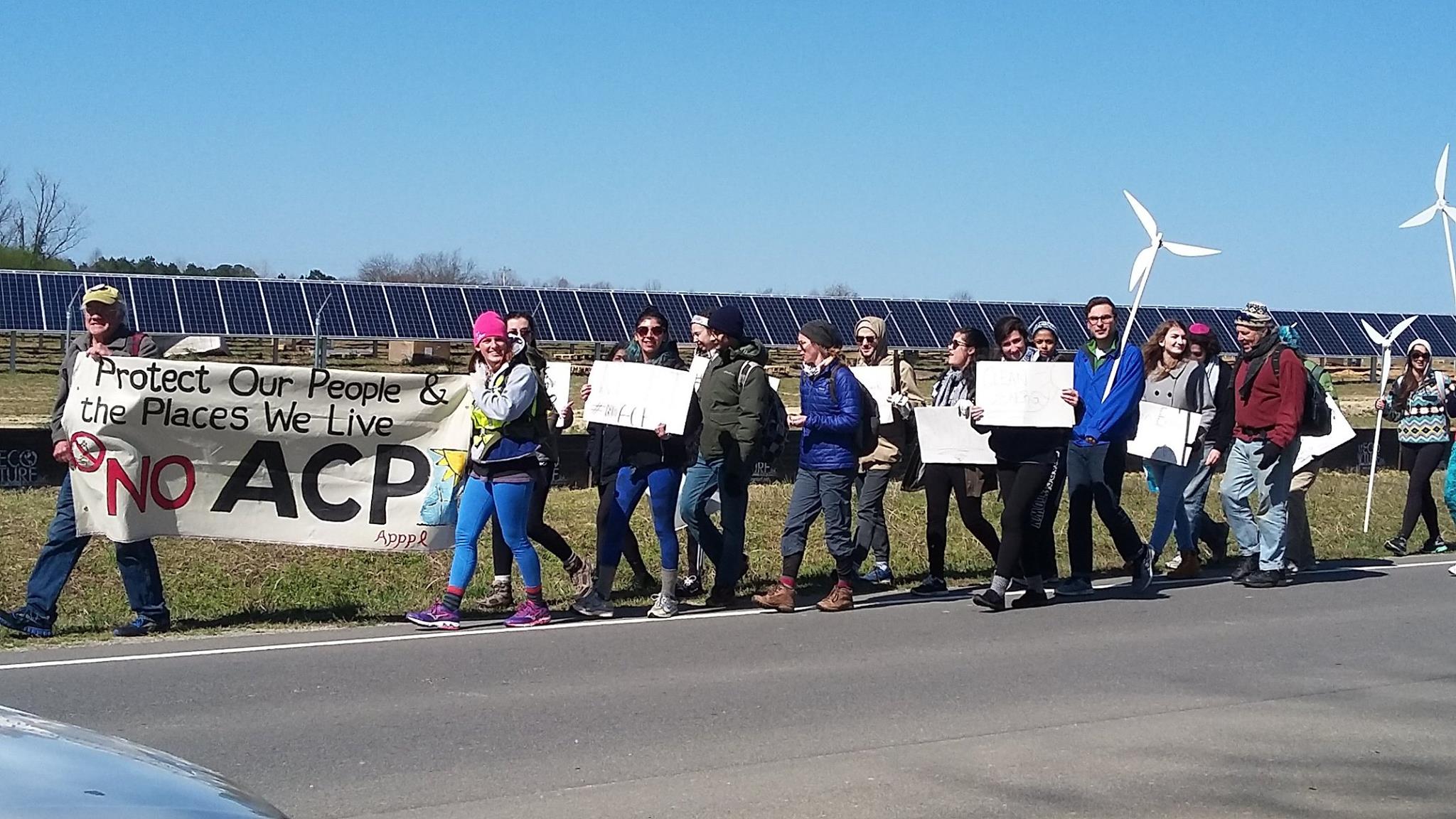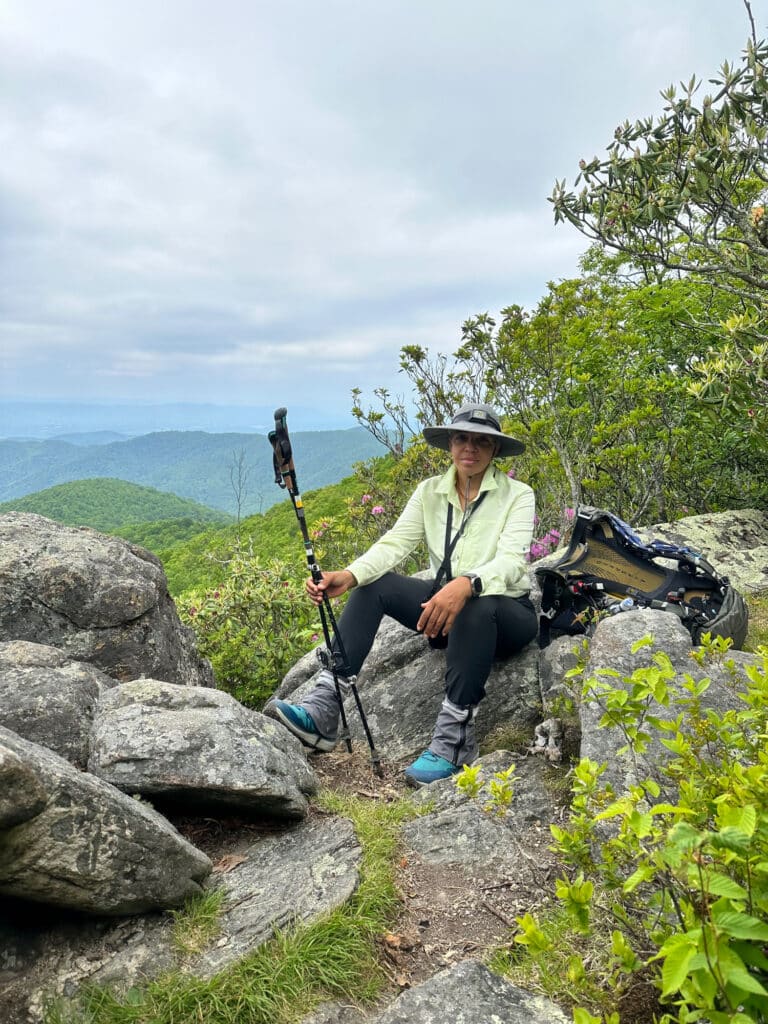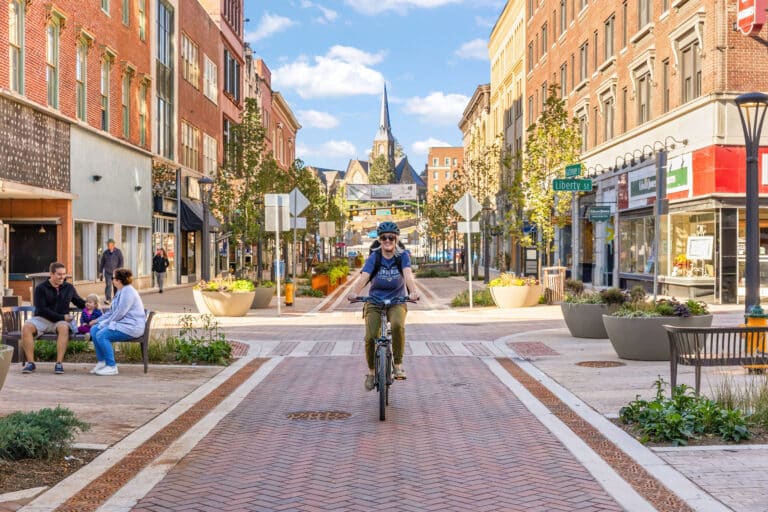Rural African-American communities, indigenous people, church groups, and activists are walking across North Carolina to oppose the DAPL of the southeast, the proposed Atlantic Coast Pipeline.
The walk began last Friday at the Virginia-North Carolina boarder. Along the way they’ll provide information about the pipeline at schools, churches, and community centers. After walking the 205-mile proposed route of the Atlantic Coast Pipeline in North Carolina, the walk will end in Hamlet, North Carolina.
The proposed pipeline puts our rivers, mountains, national forests, wetlands, and ground water at risk. The $5.5 billion projects also affects West Virginia and Virginia. In the multi-state area, the route crosses 1,989 waterbodies, 71 miles of vulnerable karst terrain, affects 248 acres of wetlands, crosses 15.9 miles of the George Washington National Forest in Virginia, and crosses 5.1 miles of the Monongahela National Forest in West Virginia.
The pipeline will directly affect the traditional lands of several native tribes including the Monacan, Chickahominy, Eastern Chickahominy, Nansemond, Nottoway, Occaneechi, Haliwa-Saponi, Meherrin, Tuscarora, Coharie, and Lumbee.
An independent study shows that the existing gas supply provides enough gas to meet consumer demand through 2030, providing ample time to develop renewable energy sources. The Atlantic Coast Pipeline is one of six major pipelines proposed for West Virginia and Virginia. Experts warn of the risk to our environment caused by overbuilding pipeline infrastructure.
Greg Buppert, Senior Attorney at Southern Environmental Law Center said, “Dominion’s Atlantic Coast pipeline will not only irreparably alter our natural terrain but it is also unnecessary. The current route carves through the mountains in an area the U.S. Forest Service calls, ‘the wildland core of the central Appalachians’, for a pipeline that will lock generations of Virginians into dependence on natural gas.”
The pipeline also jeopardizes many communities along the proposed route. Nancy Sorrells of the Augusta County Alliance said, “Every foot of this route has a victim: a family that would be displaced, a farmer who would be impacted, schoolchildren whose safety is compromised, and residents whose drinking water is a risk. And for what? Not for energy independence or to turn on the lights, but rather for the profit of a private corporation.”
Proponents of the project promise jobs for economically disenfranchised communities. Many claim that the promise of jobs is often empty, with utilities companies bringing in hired crews from elsewhere for the higher paid jobs, only hiring locals for low-paying and temporary jobs.
Ericka Faircloth, a Lumbee Indian member of the grassroots Eco Roberson said, “Folks who live in Robeson County, one of the poorest and most diverse counties in North Carolina, are especially vulnerable to the empty promise of jobs. Residents of low wealth will be most severely impacted by higher utility rates to pay for the pipeline, and by lowered value for their land.”
The organizers of the Walk to Protect Our People and The Places Where We Live consider this an early step in organizing North Carolina, laying the groundwork for a grass-roots resistance supported by national groups.
If you’d like to walk part of the route or support the walkers, you can find more information here.
The public-comment period on the draft Environmental Impact Statement for the Atlantic Coast Pipeline will end on April 6, 2017. The Federal Energy Regulatory Commission’s Statement is available here.







